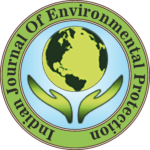IJEP 39(8): 752-757 : Vol. 39 Issue. 8 (August 2019)
Milind B. Kulkarni1 and Pravin M. Ghanegaonkar2
1. Sinhgad College of Engineering Research Center, Department of Mechanical Engineering, Vadgaon(Bk), Pune
2. Keystone School of Engineering, Pune
Abstract
Flower waste from famous Indian temples situated along the banks of rivers is traditionally disposed of in the rivers or landfill, causing environmental pollution. Anaerobic digestion of flower waste is an energy proficient solution to this problem in the Indian scenario. The present experimental study deals with the generation of biogas using flower waste feedstock, improvement in biogas generation at reduced pretreatment cost and improvement of biogas quality by using chemical absorption technique. Alkaline chemical pretreatment is applied to flower waste using sodium hydroxide and sodium carbonate. A novel chemical pretreatment using sodium carbonate is effective in improving the biogas generation by 106% with a simultaneous reduction in the cost of pretreatment upto 96%, as compared to sodium hydroxide pretreatment. The contaminants, carbon dioxide and hydrogen sulphide in biogas restrict its widespread applications. In the present study, the methane content of biogas isenriched upto 96.91% using chemical absorption technique in packed column reactors. Another experimental run gives hydrogen sulphide removal efficiency of 92.41% from biogas, to minimize the corrosion and health hazards of hydrogen sulphide. Large-scale application of these techniques can propagate floral waste as a sustainable energy source for Indian temples and a reduction in river pollution.
Keywords
Anaerobic digestion, Flower waste, Chemical pretreatment, Methane enrichment, Hydrogen sulphide removal
